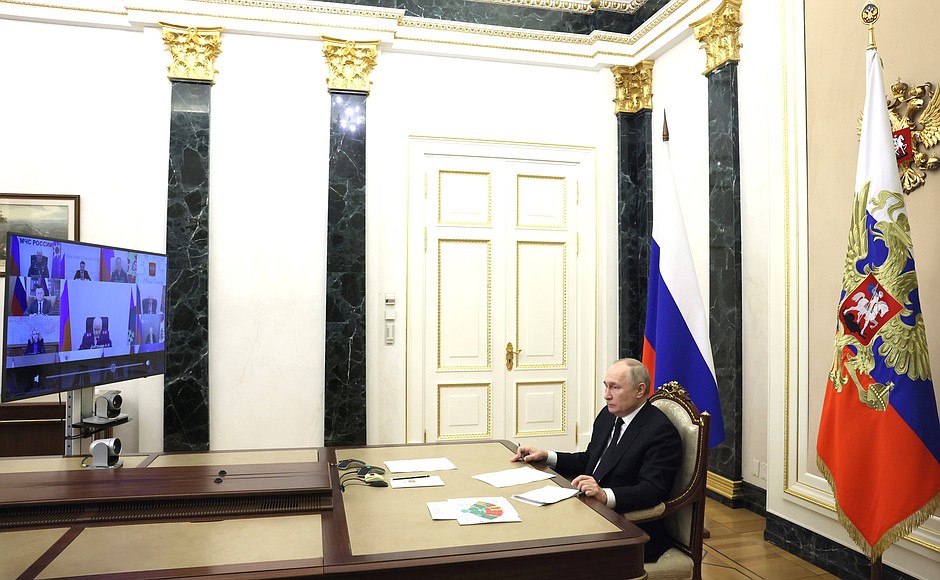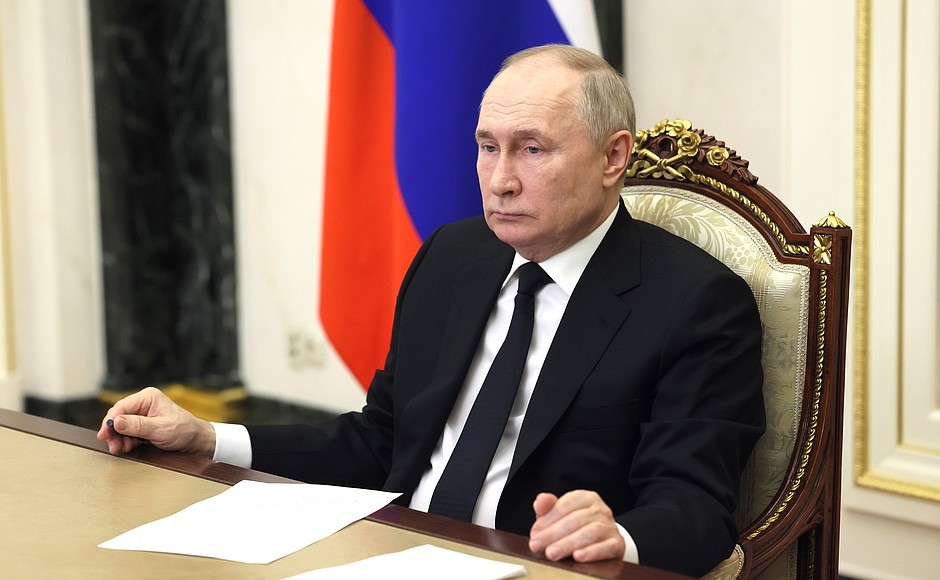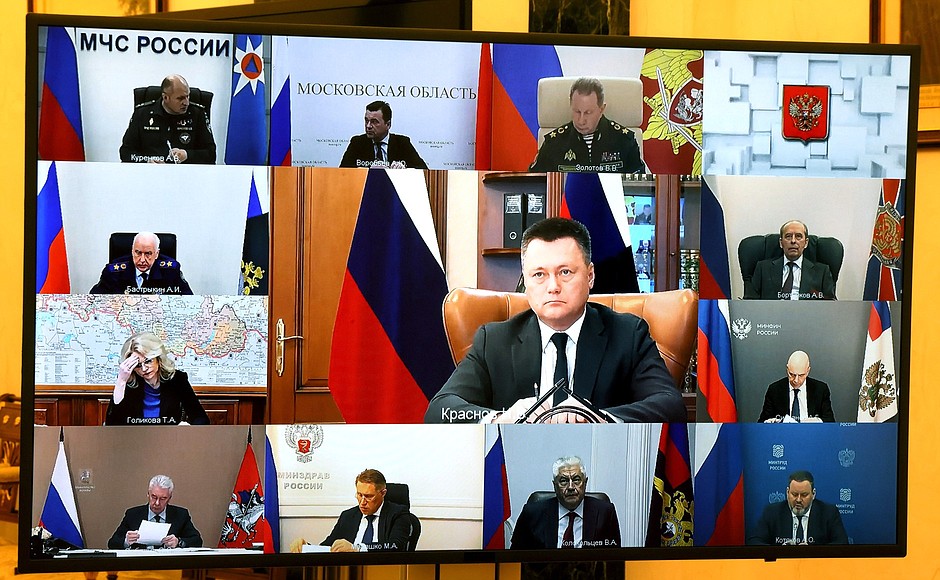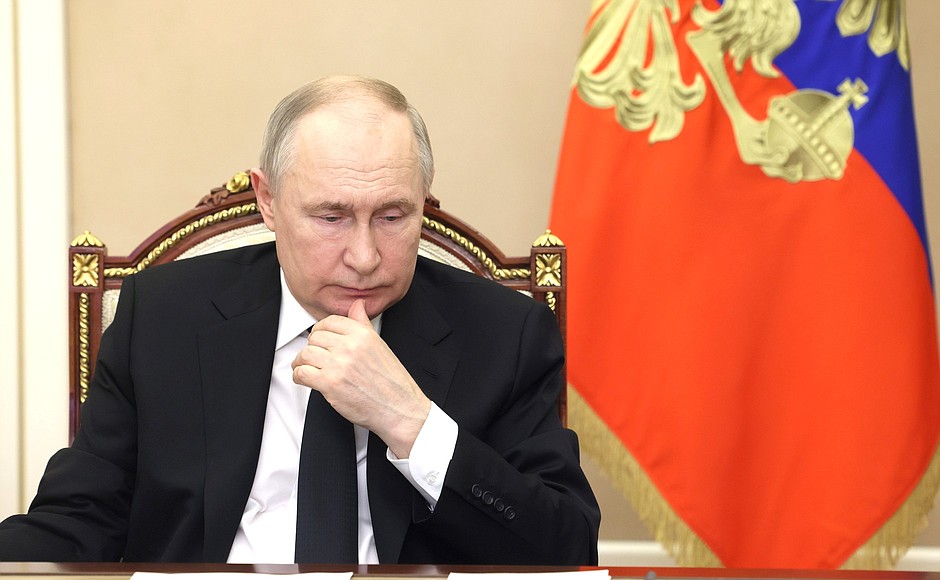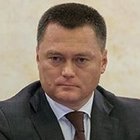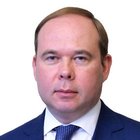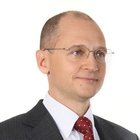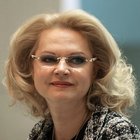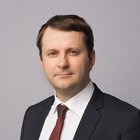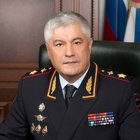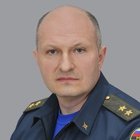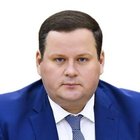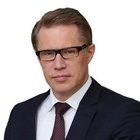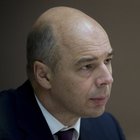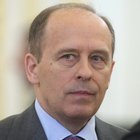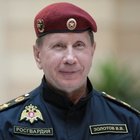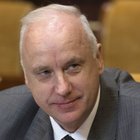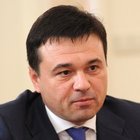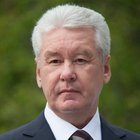The meeting was attended by Prosecutor-General Igor Krasnov, Chief of Staff of the Presidential Executive Office Anton Vaino, First Deputy Chief of the Presidential Executive Office Sergei Kiriyenko, Deputy Prime Minister Tatyana Golikova, Presidential Aide Maxim Oreshkin, Interior Minister Vladimir Kolokoltsev, Emergencies Minister Alexander Kurenkov, Minister of Labour and Social Protection Anton Kotyakov, Healthcare Minister Mikhail Murashko, Finance Minister Anton Siluanov, Director of the Federal Security Service Alexander Bortnikov, Director of the Federal Service of National Guard Troops – Commander of the National Guard Troops Viktor Zolotov, Chairman of the Investigative Committee Alexander Bastrykin, Moscow Region Governor Andrei Vorobyov, and Moscow Mayor Sergei Sobyanin.
* * *
President of Russia Vladimir Putin: Colleagues,
First of all, I would like to express again my deep condolences to the families and friends of those who perished in the inhuman terrorist attack of March 22, and wish a speedy recovery to the injured and wounded.
I would like to thank everyone who saved people and helped the injured in extremely difficult circumstances. In this difficult time, our society showed an example of true solidarity, unity, and mutual support.
I know that the victims’ families are receiving words of sympathy from people of different ethnicities, from all regions of our country and of all ages, including children and students. Those who planned this terrorist attack hoped to sow panic and discord in our society but instead met with our unity and resolve to counter this evil.
I would like you to report today on the course of the investigation and search to identify all those who are involved in this terrorist attack and those who ordered and organised it.
Despite our overwhelming pain and grief, sympathy, and legitimate desire to punish all perpetrators of this inhuman atrocity, the investigation must proceed with the utmost professionalism and objectivity, with no political bias whatsoever.
We know that the crime was perpetrated by radical Islamists. The Islamic World itself has been fighting this ideology for centuries. But we are also seeing how the United States is using different channels to try and convince its satellites and other countries of the world that, according to its intelligence, there is supposedly no sign of Kiev’s involvement in the Moscow terrorist attack, that the deadly terrorist attack was perpetrated by followers of Islam, members of ISIS, an organisation banned in Russia.
We know whose hands were used to commit this atrocity against Russia and its people. We want to know who ordered it.
We need to obtain answers to a number of questions in the course of joint work of our security services and law enforcement agencies.
For example, do radical and even terrorist Islamist organisations truly have an interest in launching attacks on Russia now that it supports a fair resolution of the escalated conflict in the Middle East? And how do radical Islamists, who present themselves as devout Muslims and follow the so-called pure Islam, justify committing atrocities and serious crimes during the holy month of Ramadan, which is sacred to all Muslims?
We will need to answer these and other, more specific and professional questions in order to carry out an objective investigation into the crime committed in Moscow. One thing is absolutely clear: the heinous crime committed in the Russian capital on March 22 is an act of intimidation, as I said.
This leads to the next question: who stands to benefit from it? This act of violence is likely just one in a series of attempts by those who have been fighting against our country since 2014, using the neo-Nazi Kiev regime as a pawn. As for the neo-Nazis, it is widely known that they have never hesitated to employ the most repugnant and inhumane methods to achieve their aims.
This becomes even more apparent today, as their much-touted counter-offensive has failed completely, as acknowledged by everyone and no longer disputed. The Russian Armed Forces are maintaining the initiative along the entire front line, while the enemy's efforts to stabilise the front have been unsuccessful.
Hence the attempts to infiltrate our border territories and establish a presence there, artillery attacks, including the use of multiple rocket launchers, on peaceful residential areas and civilian infrastructure facilities, such as power grids, and attempts to launch missiles at the Crimean Bridge and the Crimean Peninsula itself.
These bloody acts of intimidation, like the terrorist attack in Moscow, fit logically into this sequence. Their goal, as I mentioned, is to sow panic in our society while demonstrating to their own people that not all hope is lost for the Kiev regime.
All they need to do is follow the orders of their Western patrons, fight until the last Ukrainian, obey Washington's commands, endorse the new mobilisation law, and form something resembling a new version of the Hitler Youth. To comply with all of this, they will seek new weapons and additional funds, much of which will likely be embezzled and, as is customary in Ukraine today, put into their own pockets.
Incidentally, in the 1920s, the Ukrainian nationalists had an organisation called the Union of Ukrainian Nationalist Youth, which later merged with the Organisation of Ukrainian Nationalists.
Of course, we must also answer the question of why the terrorists, after committing their crime, attempted to flee specifically to Ukraine. Who was waiting for them there? It is clear that those supporting the Kiev regime do not wish to be implicated in acts of terrorism and be seen as sponsors of terrorism. But there are indeed numerous questions.
I would like to receive regular updates on the progress of the investigation.
Additionally, please provide information on the federal and regional measures taken to support the families of those killed and injured, as well as on how the work of the medical and social services has been organised. We have discussed these issues with our colleagues many times, but today we will go into more detail, as agreed.
Let's get to work. Over to you, Mr Bastrykin.
Chairman of the Investigative Committee Alexander Bastrykin: Mr President,
The Investigative Committee is continuing its active work to investigate the criminal case concerning the terrorist attack at Crocus City Hall. The investigation has established the complete timeline of the events that occurred.
On March 22, at 6:54 pm, four criminals drove up in a Renault car to the Crocus City Hall concert hall, where they waited for the audience to arrive.
At 7:58 pm, the terrorists armed with automatic firearms opened fire on the visitors outside the Crocus City Hall building.
After entering the lobby and then the concert hall, they continued to shoot at everyone they saw, regardless of gender or age.
Using the gasoline they had brought with them in plastic bottles, they set fire to the premises and left the building at 8:11 pm. As they drove the car out of the parking lot, they ran over pedestrians – a family with two young children – at high speed. The children were seriously injured and taken to hospital.
All the attackers were detained in the Bryansk Region during a pursuit along the motorway leading towards the Russian-Ukrainian border.
Two AK-74 assault rifles, over 500 rounds of ammunition, 28 magazines with ammunition, and bottles with remaining gasoline were found and seized at the scene. The examination of the crime scene is ongoing, involving criminalists and experts from the Investigative Committee of the Russian Federation.
Additionally, over 200 inspections, searches and seizures have been conducted, resulting in the seizure of over 1,000 various objects significant to the investigation.
During the search of the apartment where the accused lived, we found fragments of fabric and tools used in preparing the attack, along with their fingerprints.
A Makarov pistol without ammunition and a magazine from a Kalashnikov assault rifle with 30 rounds of ammunition were found in the criminals' car. We have scheduled 90 forensic examinations – ballistic, genetic and fingerprint examinations – on all the seized items, weapons, and ammunition.
Four perpetrators of the terrorist act have been charged and taken into custody. All the accused individuals pleaded guilty during interrogation and in court, providing detailed testimony about the circumstances of the crime, the instigators, and the individuals who aided in the preparation of the terrorist act.
The investigation also identified and detained three other people who assisted in the preparation of the terrorist attack: they provided accommodation in a flat, a car for transportation, and transported money. A motion has been filed with the court to place them in custody.
The initial results of the investigation indicate that the terrorist attack was carefully planned and prepared. As a result of the attack, 139 people died. Of those, 75 have been identified as of today. There are three children among the dead. The identification of the deceased continues.
Out of the total number of deceased, 137 people were killed at the scene of the terrorist attack, and two died in medical centres. Forty people died from gunshot wounds, two people died from a combination of gunshot and cut/stab wounds, and 45 people died as a result of the fire, from exposure to high temperature and combustion products. In addition, 182 people sustained wounds and injuries of varying severity.
We have commissioned and are conducting 160 forensic medical and genetic examinations to establish the cause of death and identify the victims. We have questioned 131 of crime victims and more than 500 witnesses. According to eyewitness testimony, the hall caught fire as a result of the actions of the accused, who spilled gasoline, which they brought with them, on chairs and walls and committed arson.
In this context, the investigation is examining the possibility of a breach of safety requirements and the fire extinguishing system in the Crocus City Hall concert hall. For this purpose, consoles, electronic units, and control devices of the fire-extinguishing system in the concert hall have been collected. They have been sent for analysis and to retrieve data on the mode of the fire safety system operation at the time of the terrorist attack. The contents of the fire protection system server are being examined by experts. A fire investigation has been launched to establish the operability and timeliness of response of all fire safety systems.
We are working in close contact with operational units of the Interior Ministry and the Federal Security Service of Russia. We are taking the necessary investigative measures to identify all those involved in the crime, including those who ordered and organised the attack. The investigation into the case is ongoing.
This concludes my report.
Vladimir Putin: Thank you.
Ms Golikova, please.
Deputy Prime Minister Tatyana Golikova: Mr President, colleagues,
Following the terrorist attack, 145 people were admitted to medical clinics and hospitals. Most of them suffered gunshot wounds, multisystem and combined injuries, or were intoxicated by products of combustion.
In total, 52 patients have been discharged after their condition improved, and they will be treated at their local outpatient clinics. A total of 93 people, including five children, continue to receive treatment. Doctors are working hard to save nine patients, including one child, who are in extremely critical condition; 29 patients remain in serious condition, another 30 patients are in a moderately grave condition, and the condition of 25 patients has improved, with doctors preparing to discharge them.
The most serious cases are currently being treated at Moscow-based and federal clinics. Local outpatient clinics have treated 150 patients to date, and I believe that this number may change as people who were able to return home are now contacting medical institutions.
Psychiatrists and psychologists from the Serbsky Institute, the Federal Medical-Biological Agency, the Russian Ministry for Civil Defence, Emergencies and Natural Disaster Relief, from Moscow and the Moscow Region and volunteer psychologists are helping to provide assistance to the crime victims and their families.
At the most critical moment, at least 50 ambulance units, teams of emergency medicine service of the Moscow Region, Moscow, and federal medical organisations were at the crime scene at the same time. In total, 203 ambulance and air medical service units were rendering assistance to the crime victims.
Considering the scale of the attack, we almost instantly allocated 1,500 beds at medical institutions in the Moscow Region, the city of Moscow, federal medical institutions of the Healthcare Ministry, the Ministry of Science and Higher Education, the Federal Medical-Biological Agency, and the Defence Ministry. We also deployed intensive care, surgical, and burn care facilities. All teams reported to work and began treating patients.
Despite an abundant supply of blood and blood components, the citizens of Russia responded to the tragedy and arrived at donor centres to help the victims of the attack. According to the Federal Medical-Biological Agency, the country's donor centres received 11,822 donors and collected 4,624 litres of whole blood and 1,130 litres of plasma. These donor centres continue to function.
To support the families of those who were killed, perished, or were injured in the terrorist attack, the leadership of Moscow and the Moscow Region made a decision to provide lump-sum payments of three million rubles for every person killed or perished, one million rubles for every person treated or being treated at hospitals and clinics, and 500,000 rubles for those who have been treated at outpatient clinics.
The Moscow City Government is making payments to residents of Moscow and other regions, while the Moscow Region Government is making payments to residents of the region. The payments are currently underway and will continue as the documents are received
In addition, a working group has been created at the Social Fund and an emergency response headquarters was set up at the Federal Service for Labour and Employment (Rostrud) to provide assistance to the injured and the victims’ families. As of today, 22 survivor pensions have been approved proactively without asking for documents to be provided, including 19 insurance pensions and three social pensions. The pensions will be paid as soon as we get banking details from the individuals concerned.
Outreach work is underway with the families and friends of the perished concerning the payment of burial allowances and further submission of additional documents for compensation. Similar work is underway with employers. Work has also been organised to assign payments under compulsory social insurance against industrial accidents.
Mr President, assistance will be provided to the injured and the victims’ families as soon as their names are identified. We will keep this issue constantly under control.
I would also like to note that in the first hours after the terrorist attack, volunteers and concerned citizens joined the relief efforts. On March 23, the We are Together movement launched a fund-raiser effort to help the families of the perished and the people injured in the terrorist attack. I want to report that the amount of funds raised so far stands at almost one billion rubles.
As many as 11,371 volunteers are working at the spontaneous memorial sites and at the Help Centre. On the day of national mourning for the victims, March 24, and today, March 25, the regions held rallies calling for unity and demonstrating a sense of involvement in the events. A total of 257,500 volunteers and 1.6 million of our citizens took part in the rallies.
Russian businesses joined in as well. Over 42 transport companies, banks, mobile phone operators, restaurants, major retail outlets and other businesses helped as best as they could.
I would like to express my deep gratitude to our medical professionals for helping the injured, and to our concerned citizens for coming forward in this difficult hour and helping people in trouble, thus proving once again that our country is united, and we act as one in the face of the challenging circumstances.
Thank you.
Vladimir Putin: Thank you.
We discussed this tragedy during the early hours of March 23. Clearly, just like the first responders from different emergency services, we must be ready to deal with all kinds of situations. The fact, though, that passers-by and medical workers who are not part of the emergency services, as well as members of other services, showed up instantly in the place where they should be and helped the people in need of assistance demonstrates the maturity of our society and our people’s readiness to stand up for their interests and to fight for themselves, for their loved ones, and for the people who need help and support. This is a very important feature of our society today. You are absolutely right.
We will come back to this.
I would now like to listen to what Mr Sobyanin has to say.
Please go ahead.
(In his report, Moscow Mayor Sergei Sobyanin discussed the medical and social assistance provided by the corresponding Moscow services to the people affected by the terrorist attack, as well as the targeted support provided to the victims’ families who come to Moscow to identify bodies or search for their loved ones.)
Vladimir Putin: Now, I would like Mr Sobyanin and Mr Vorobyov [Moscow Region Governor], who will speak next, as well as all of our colleagues from the regions, to be mindful of the following. Mr Sobyanin mentioned the people who come to identify the bodies of their family members or visit their relatives who, thankfully, were not injured or were slightly injured and to take them home.
My point is that every member of the public who attended the concert and needs support must receive it, regardless of where they live, because some families have lost their primary breadwinners, among other things.
We need to analyse every detail of this terrifying crime and provide proper assistance to the people, not just tick the boxes. Please approach it professionally and act with compassion when supporting those in need.
Mr Vorobyov, please proceed.
(In his report, Moscow Region Governor Andrei Vorobyov spoke about the firefighters and first responders, the assistance provided by volunteers and businesses, and mentioned the effort to raise funds to meet the needs of the affected families.)
Vladimir Putin: Good.
Colleagues, would anyone like to add to that, provide additional information, or give an assessment?
Yes, Mr Krasnov.
Prosecutor General Igor Krasnov: Mr President, colleagues,
The terrorist attack that took place on March 22 highlighted the priorities that need to be addressed first in order to prevent such tragedies in the future and to help the victims to the best of our abilities.
I would like to emphasise that all services have been working as a team 24/7 since the first hours of the tragedy and continue to do so. We have focused in our work on blocking false information and attempts to incite interethnic and interreligious conflicts, as well as to spread panic and hatred based on ethnicity.
At our request, information has been removed from over 200 resources, including accounts on social media platforms such as Odnoklassniki, VKontakte and Telegram, as well as other websites. In addition to blatant fake stories, a significant amount of unverified information was posted online, contributing to destabilisation. Even reputable media outlets were guilty of this, and we had to refute such information and encourage media leaders to rely solely on official sources.
Priority measures also included assessing the performance of the oversight bodies responsible for inspecting this specific concert venue, including fire protection and anti-terrorist measures, compliance with the requirements for equipping security guards at mass attendance events in accordance with the number of spectators, evacuation measures, and the response time to phone calls from private security guard companies. A full assessment has yet to be completed, but it is clear that the scale of the terrorist attack was much bigger and didn’t match the provisions of safety laws for such venues.
Given the significant increase in the level of terrorist threats, the executive authorities of the constituent entities need to update the safety and security passports for mass attendance venues. We will do this soon.
The facility safety and security passport must be updated at least once every three years in accordance with the corresponding provision of a regulatory act governing security requirements. One reason to update this passport is changes in the nature of terrorist threats related to mass attendance venues. The facility safety and security passport was approved on December 17, 2018, and has not been revised since then. Unfortunately, it does not take into account the existing terrorist threats.
We will also collaborate with the Emergencies Ministry to adjust the existing computation techniques for safety and evacuation provisions in case of fire. These techniques currently do not include scenarios of fires during terrorist attacks or similar arson cases.
The available video recordings show that the terrorists attacked using the main fire escape routes, causing people to flee in the opposite direction from the attackers and seek refuge on the premises.
Overall, I have provided all necessary instructions to the prosecutor; the law enforcement agencies are coordinating their actions, and the investigation into this criminal offense is being supervised. We continue to take all necessary measures to assist the crime victims and ensure the rule of law on a 24/7 basis.
This concludes my report.
Vladimir Putin: Thank you.
Please thoroughly review all the points you have outlined. We will meet again soon to discuss these issues.
Mr Kurenkov, do you have any information or comments regarding your work, or may be any suggestions regarding the statements made by the Prosecutor General?
Emergencies Minister Alexander Kurenkov: I have something to add, if I may.
The building was equipped with an automatic fire alarm system. This system responded to the fire as expected. There was also a set of four robotised fire-fighting hoses and a software control system, which worked in conjunction with other fire protection systems. They were activated during the terrorist attack, but the arson involved the use of flammable substances. According to experts, the system failed to extinguish the fire due to its large area. This is what I wanted to say.
We managed to totally extinguish the fire on wall panels, given the materials they were made of, only at 6.40 pm today. The search and rescue operations continue. They are expected to be completed by 5 pm tomorrow.
This concludes my report.
Vladimir Putin: Thank you.
I would like to express my gratitude to the employees of the Federal Security Service, the Interior Ministry, the National Guard, and the Defence Ministry, whom I instructed to take all necessary measures to apprehend the criminals. This was achieved through joint efforts, including the involvement of National Guard and Defence Ministry units.
We will certainly revisit all issues and details of this tragedy and discuss them. Regarding the reports, I ask everyone, as I mentioned earlier, to provide regular updates on the investigation.
Thank you.
